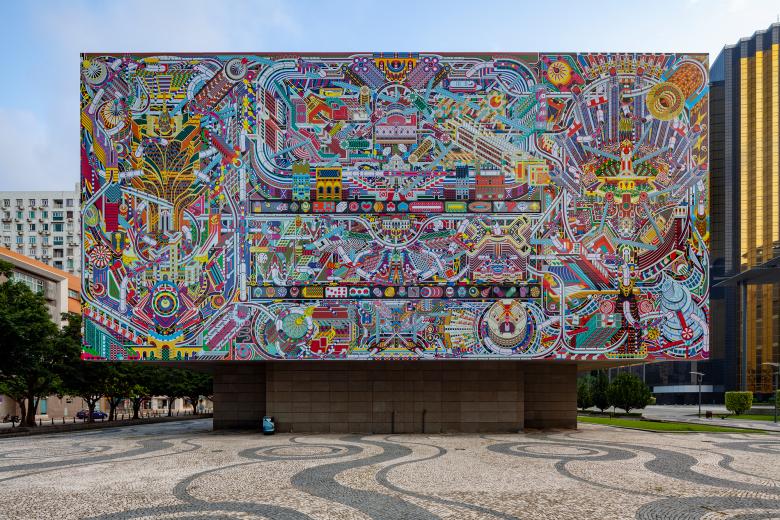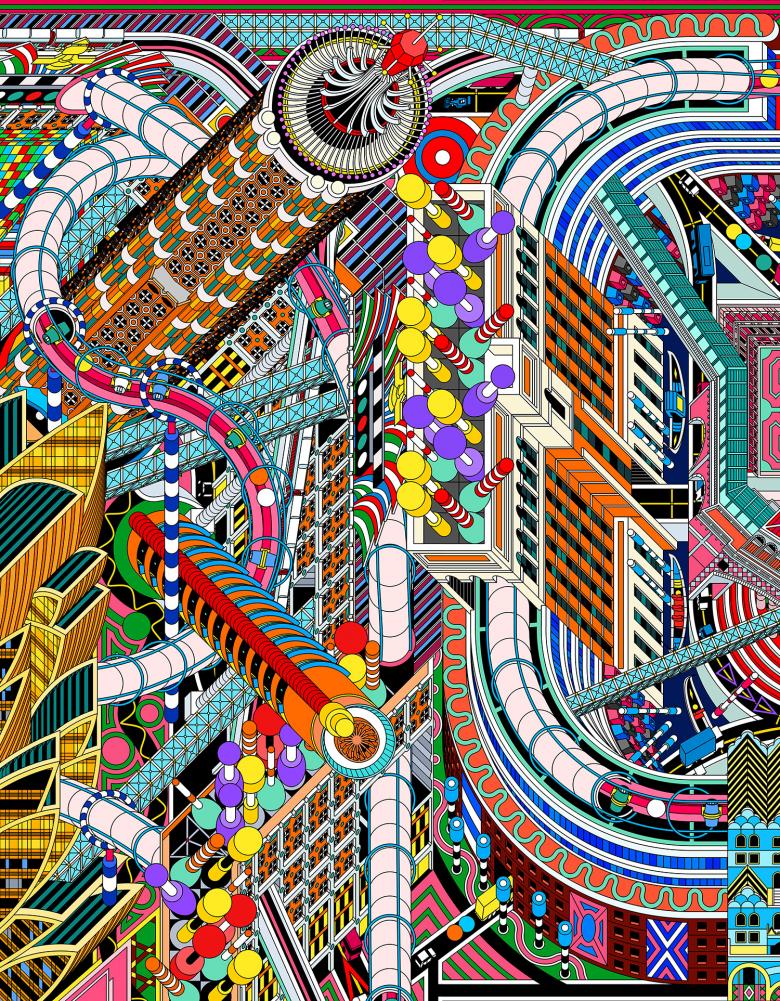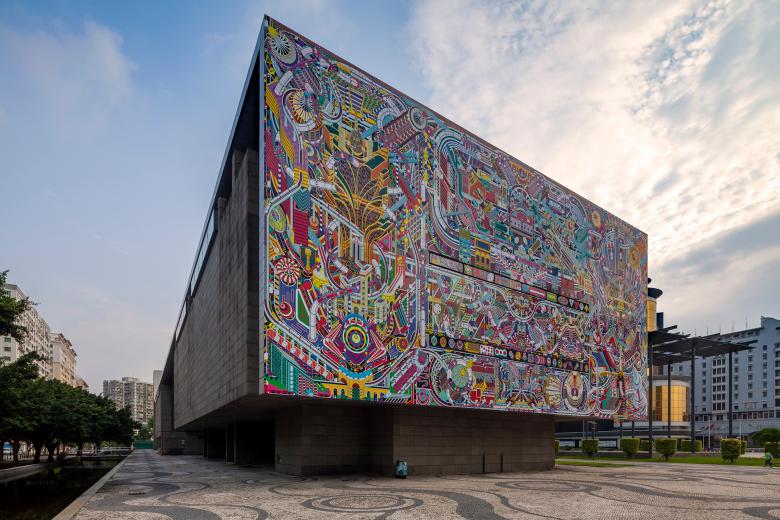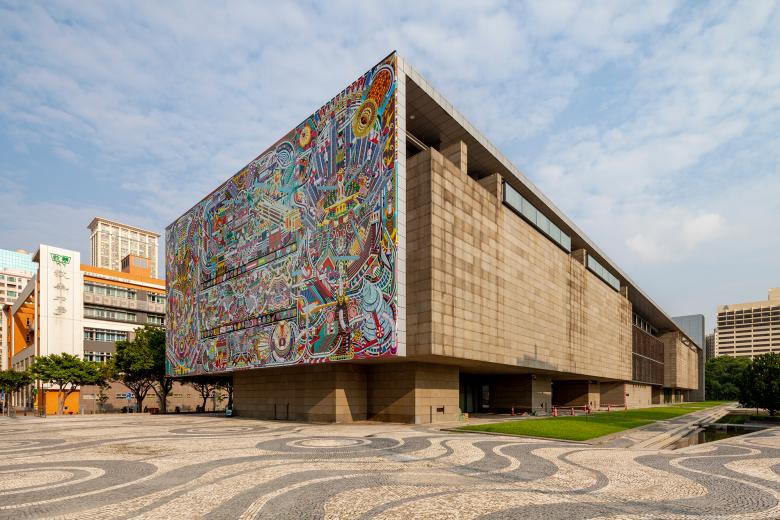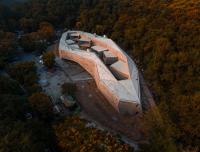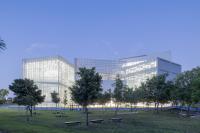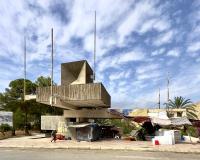Learning from Macao
Macao, China
Learning from Macao is a mural Drawing Architecture Studio created for Art Macao: Macao International Art Biennale 2021, as a commission by the Cultural Affairs Bureau of the Macao SAR. The completed piece is installed on the outer wall at The Handover Gifts Museum of Macao, revealing a familiar yet different Macao to the local viewers. The mural has also been acquired by Macao Museum of Art for its permanent collection.
Known as the Las Vegas of Asia, Macao is a thriving home of casinos and entertainment. Such an analogy is naturally a reminiscent of the legendary publication Learning from Las Vegas. The book evoked a return to ornament and symbolism in architecture, and a new focus on the architecture of the everyday. Observing Macao in a similar perspective, the impact DAS felt from its casino architecture would probably be no less than that Venturi, Scott Brown, and Izenour experienced from those “decorated sheds” and “ducks” in Las Vegas. From Grand Lisboa to Studio City, those casino buildings never lack intricate decoration or exaggerated shape. They stand proudly in the city as symbols of wealth, attracting tourists from around the world. To DAS, such a kind of honest expression of desire in architectural design is also worthy of academic attention. DAS hoped to carry forward the spirit of Learning from Las Vegas and embrace the controversial aesthetics exemplified in those casino buildings. Instead of many famous historical landmarks preserved from the Portuguese colonial era in Macao, DAS chose to make the casino buildings the protagonist of the drawing and the proud symbol of Macao in their new portrait for the city.
DAS was not only intrigued by the unique architectural style of those casinos in Macao, but was also inspired by the interface design of casino games as a reference for urban planning. The interfaces of popular games such as Pinball, Pachinko, Craps, Pat Gow, Roulette… are all featured with clear organizational structure, geometric layouts, and interesting combination of flat graphics, very much like the master plan of a city or urban block. In order to strengthen this drawing's reference to casino culture, DAS adapted the layouts of those casino games to design a new master plan for Macao. Divided by two narrow horizontal windows on the wall, the mural consists of 5 independent drawings, each based on a plan transformed from different game interfaces. The landmark casinos, historical buildings, and other vernacular constructions are rearranged on those new plans. Learning from the Symbolist approach observed in the casino architecture, DAS also designed some new buildings for the city. Chips and dice become buildings and widgets of the gaming machines become landscape installations, all being mixed with architecture from the reality. These 5 drawings are then seamlessly connected by line elements such as pipes, sky trains and highways to form a complete urban landscape of Macao. The positioning of the buildings, design of the landscape, and routes of traffic lines also refer to the structures of the actual gaming machines. In the end, the whole city stands up as if from the interfaces of the games, and all the constructions become “components” of the games.
Completed with vibrant colors and exuberant details, Learning from Macao is a visual fantasy about the city’s distinctive urban culture. Historic and contemporary, architect-designed and vernacular, real and fictional constructions are mixed and collaged in the world of game. The desire for amusement and excitement is expressed in the mural without any subtlety, just like those honest casino buildings in Macao. In Learning from Las Vegas, the authors advocated an unprejudiced and open mind for the observation of what was already existing, which has influenced a generation of architects. Learning from Macao is exactly what DAS is responding to this advocacy in the form of architectural drawing, giving due respect and admiration to the unique urban culture of Macao.
Special Thanks: Professor Sheng Qiang / Lyu Fangqing / Li Lei from Beijing Jiaotong University; Class 2024, Department of Architecture, School of Architecture and Design, Beijing Jiaotong University
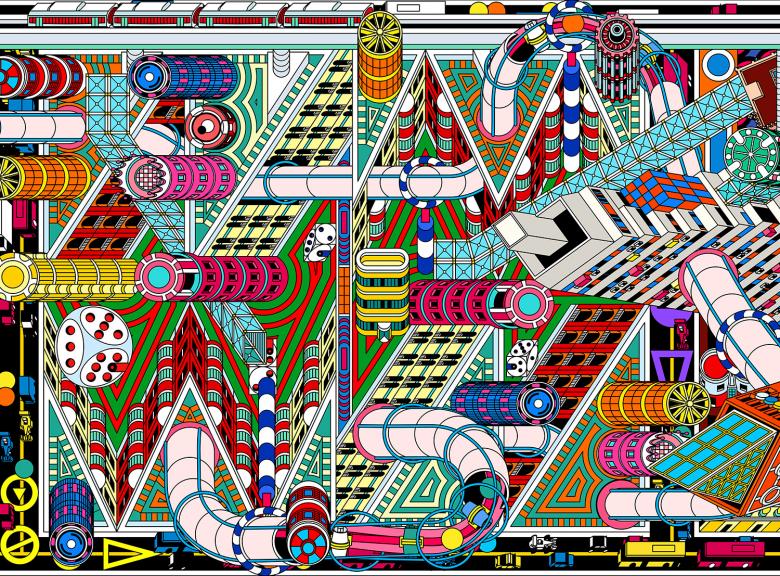

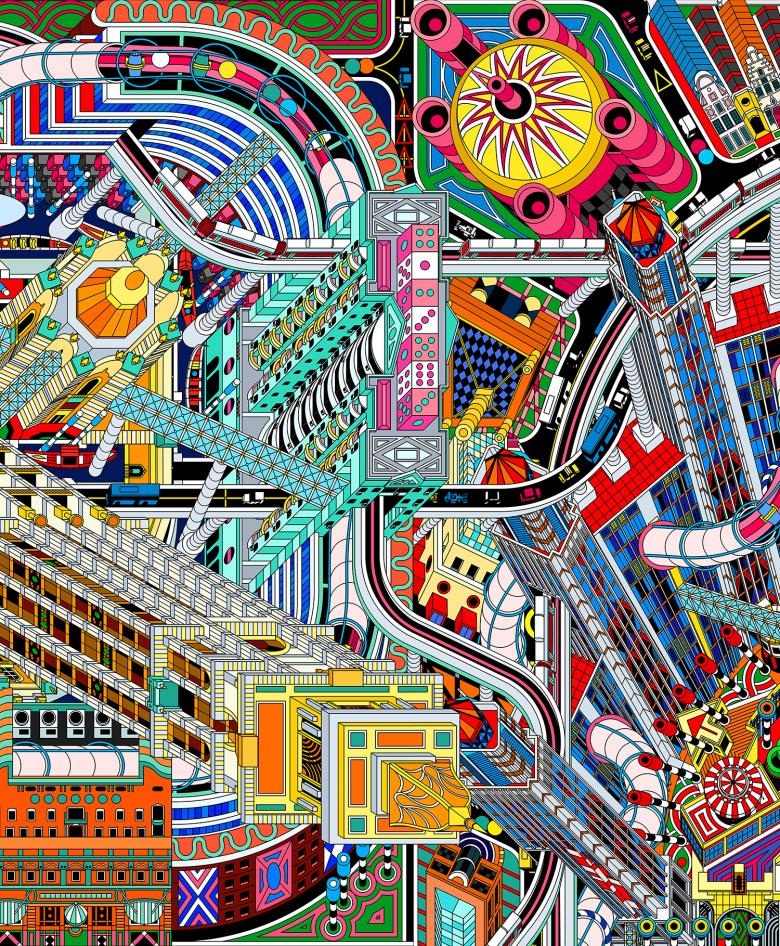
- Arquitectos
- Drawing Architecture Studio
- Año
- 2021
- Equipo
- Li Han / Hu Yan / Zhang Xintong / Xu Xiaoxuan / Lyu Nuo / Wang Yuxuan / Tang Xinyu / Meng Xinqi / Zhu Haihui / Yang Zhexu / Zhong Junye

